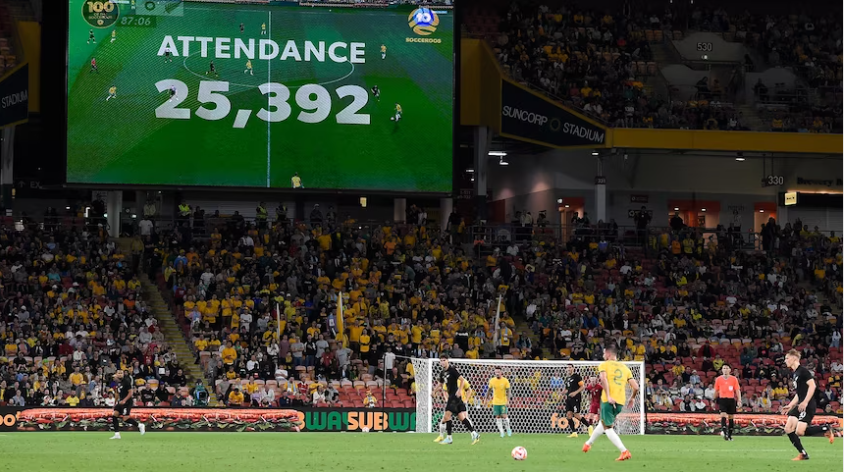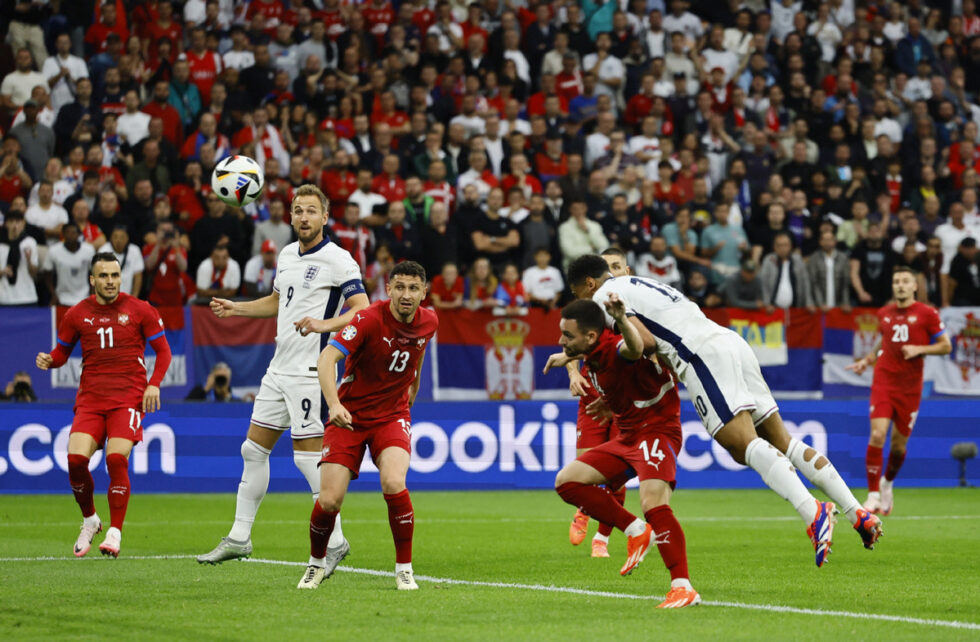
Football Australia has not ruled out hosting the 2034 FIFA World Cup but would need to build extra stadiums to stage the event or team up with at least two other countries.
The requirements of hosting the massive sporting tournament are so onerous as to be almost beyond the capability of any one country, given the demands for large-capacity stadiums, hotels and training venues to accommodate 48 teams.
Football Australia has until October 31 to lodge a confirmation of interest to host the World Cup.
This week, FIFA announced the 2030 World Cup would be hosted by six nations, with the first three games played in Uruguay, Paraguay, and Argentina before the rest of the tournament is played in Spain, Portugal and Morocco.
The 2026 tournament will be hosted by Mexico, USA and Canada, and for the first time will feature 48 teams playing a total of 104 matches.
The requirements to stage the World Cup are a pointer to how the World Cup has become a behemoth of sport.
FIFA has released documents stating any bidding nations would have to have at least 14 “suitable” stadiums with a minimum seating capacity of 40,000 spectators for group games.
In addition, the bids must be able to provide stadiums with seating capacity for 60,000 spectators for the semifinals and 80,000 for the final.
“To facilitate a selection process, FIFA would encourage a proposal of more than 14 stadiums, but no more than 20 stadiums,” the Overview of the Bidding Process document states.
Seven of those stadiums must already exist.
Australia co-hosted this year’s FIFA Women’s World Cup with New Zealand, but the requirements for the men’s event mean the two countries do not have the stadium capacity at present.
Australia has nine stadiums which can hold crowds of more than 40,000, of which five are ovals — the MCG and Docklands Stadium in Melbourne, Perth Stadium, Adelaide Oval and the SCG.
New Zealand only has one stadium which can hold more than 40,000 – Eden Park in Auckland.
It means if Australia was to lodge a bid with New Zealand, it would require at least one other country to join in, such as Indonesia.
But the stadiums are just one hurdle.
The FIFA documents stipulate host nations must also provide:
- A minimum of 72 suitable base camp training sites
- A minimum of 72 base camp hotels within a 20-minute drive of the training sites
- Each hotel must be a minimum of four stars with at least 80 guest rooms
- A minimum of four team hotels and four training sites per competition venue
- Two referee base camp hotels and training sites
- One five-star hotel per host city for FIFA VIPs
Football Australia is yet to make a decision on a bid, with chief executive James Johnson releasing a statement on Thursday saying: “We acknowledge FIFA’s communication regarding the FIFA World Cup 2034 and we are encouraged that after the hugely successful FIFA World Cup Qatar 2022 and FIFA Women’s World Cup Australia and New Zealand 2023, the football family of Asia and Oceania will once again have the opportunity to showcase their ability to welcome the world and host the best FIFA tournaments.”
A spokesman for Football Australia added: “We’re trying to understand the level of detail required in a short time frame.”
But Australia’s interest in hosting the World Cup may be a moot point given the Asian Football Confederation, of which Australia is a member, has already thrown its support behind Saudi Arabia.
Asian Football Confederation president Shaikh Salman bin Ebrahim Al Khalifa — who is also the FIFA Council’s senior vice-president — said he was “delighted” the Saudi Arabian Football Federation had announced its intention to bid.
“The entire Asian football family will stand united in support of the Kingdom of Saudi Arabia’s momentous initiative, and we are committed to working closely with the global football family to ensure its success,” he said.
Saudi Arabia currently has two stadiums with a capacity of at least 40,000 but plans to build three more and redevelop another four in time to host the 2027 Asian Cup.
It is not yet clear whether Saudi Arabia will be able to build enough stadiums to host the entire World Cup or will need to submit a joint bid with a neighbouring country.
It is also not clear whether FIFA would accept the Saudi bid given it does not have the seven existing stadiums with a minimum capacity of 40,000 spectators.
A spokesman for FIFA said it was premature to comment before any bids had been submitted.



